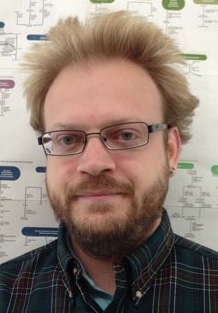Yeast researcher, Chris Hittinger, named Pew Scholar in Biomedical Sciences
A University of Wisconsin–Madison researcher, well known for his work studying yeast fermentation, has been named a Pew Scholar in the Biomedical Sciences by the Pew Charitable Trusts.

Chris Hittinger
Chris Hittinger, professor of genetics, is one of 22 of the latest early-career scientists to receive the honor. He joins the ranks of 500 Pew Scholars recognized since 1985, many of whom are Nobel Prize winners, Lasker Award recipients and MacArthur Fellows.
A national advisory committee comprised by notable scientists selected the recipients, who study everything from biophysics to neuroscience. Scholars have proven themselves to be creative in their scientific endeavors.
Along with the honor, Hittinger will receive flexible funding over the next four years to advance his research in yeast genetics and evolutionary genomics. His lab studies how yeast break down sugars by fermentation and the genetics that underlie the process. Some cancer cells are also fueled by fermentation and his findings could help lead to new therapies.
Hittinger and his team recently discovered the Patagonian origins of one of the yeast species that gave rise to lager beers.
Hittinger, also a researcher with the Great Lakes Bioenergy Research Center, received his Ph.D. in genetics from UW–Madison in 2007 under Sean Carroll, Allan Wilson Professor of molecular biology, genetics and molecular genetics at UW–Madison and vice president of science education for the Howard Hughes Medical Institute. He completed his postdoctoral work with Mark Johnston at the Washington University School of Medicine in St. Louis and the University of Colorado School of Medicine, returning to UW–Madison in 2011 as an assistant professor of genetics.
Last year, Hittinger won a National Science Foundation Faculty Early Career Development (CAREER) award to study yeast genetic diversity and ecology and how yeasts adapt to industrial conditions over time.




